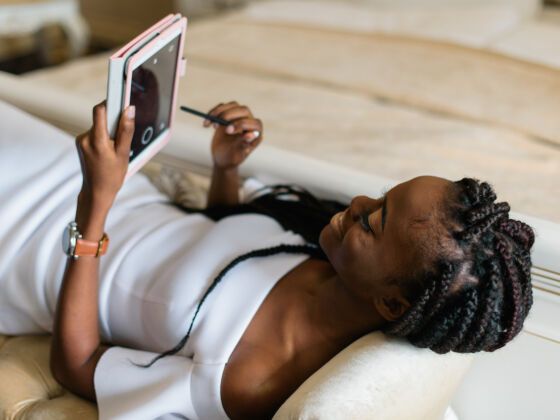Ronni Morgan, a 34-year-old living in Fort Wayne, Indiana, spent two weeks in the hospital last February. Soon after she was discharged, cities around the United States issued stay-at-home orders to stop the transmission of COVID-19. That’s when she decided to join HER, a dating app for womxn and queer folx.
“I don’t have to feel bad about the fact that I can’t really go out and do stuff right now,” she thought while recovering from her hospital visit. “I’ll just… see who’s on there, now that we’re all locked down.”
